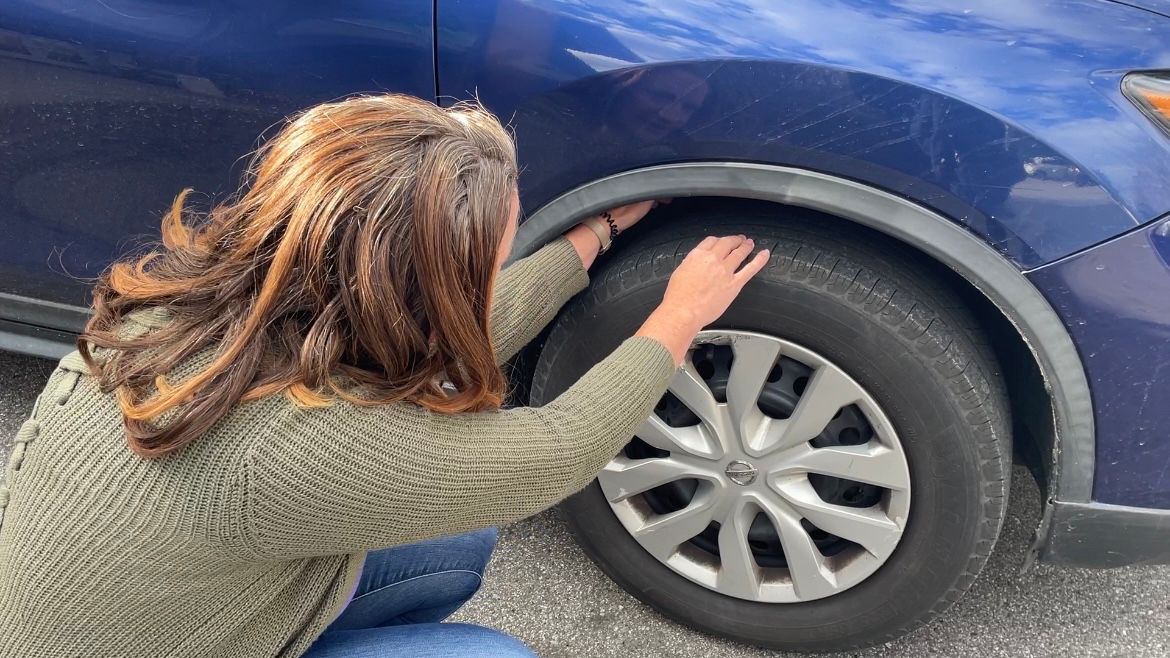ASHEVILLE, N.C. — As temperatures drop, many outdoor animals seek warm places to take cover. One common place where cats have been known to warm up has led to them being injured and even death, car engines.
What You Need To Know
- Caspian, Stone and Zeke were kittens taken to Asheville Humane Society’s emergency care after being burned by a running car engine
- Zeke’s wounds were severe, and he did not survive. Caspian and Stone’s burns were less severe, and the pair was taken into foster care to heal
- Colder temperatures have led many cats and other animals to find warmth in car engines, meaning this emergency was not the only one of its kind
Asheville Humane Society’s Donor Relations Director Laila Johnston’s recent foster kittens were unlike any others she’s taken in before.
“I’ve been fostering for over 10 years, and I’ve probably fostered over 300 kittens,” Johnston said. “It’s just nice to be a stepping stone.”
Johnston says not all kittens make it to that step. Caspian and Stone almost didn’t.
“They came into our care because their mom had put them in an engine to be safe from the elements, to stay warm,” Johnston said. “It was during that weird cold snap that we’ve had where temperatures dropped way earlier than they should have. Unfortunately, that person hopped into their car and drove off to go about their day, like you do, so the car was running for several minutes with the kittens inside.”
Caspian and Stone did not come into emergency care alone. They had a brother, Zeke.
“One kitten didn’t make it,” Johnston said. “Their trauma was just too severe, so they passed away from their wounds. But the other two, little tiny things, mainly had superficial burns, so it probably depended on what part of the engine they were in because it can heat up so fast.”
The medical team had to feed them with tubes instead of bottles because of wounds sustained on their lips.
“They’re safe, they’re healthy, they’re with a new family, but a lot of times little animals that end up in car engines don’t make it,” Johnston said. “That’s the reality. Their third sibling didn’t make it. That does happen.”
Johnston says Caspian and Stone’s story is not the only one of its kind.
“A kitten came in after finding safety in a car engine. The car had been driven, and he unfortunately had been pulled into the engine,” Johnston said, as she reflected on a separate, yet similar, occurrence.
According to Johnston, there are steps one can take to minimize the risk of harming any animals that seek warmth in their vehicle engines.
“Checking the wheel wells,” Johnston said, as she stuck her hand behind the tires.
She expressed the importance of checking around and behind tires, along with knocking on the hood of a vehicle to startle any resting animals.
“Knocking on the top of your hood, you don’t have to bang on it, you don’t have to dent it or anything like that, but then waiting for 10 or 15 seconds to see if you can hear anything,” Johnston said.




